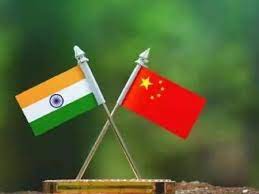Singapore, Mar 17: China’s financial market regulators are monitoring the over valuation of India-listed companies which have business dealings with Chinese-origin companies in Asia, following a recent dispute settlement of two firms from both countries, informed sources said on Friday.
The sources cited a judgement by the Singapore International Commercial Court (SICC) this month, involving India’s Kiri Industries and DyStar Global Holdings (Singapore), a subsidiary of the world’s largest dye manufacturer from China.
The Hong Kong-based sources pointed out that Kiri’s hope for a USD 603.8-million buyout of its stake by DyStar is looking dim.
The deal, as per the sources, is the buyout of Kiri’s 37.57 per cent interest in Dystar which was valued at USD 603.8 million.
China’s regulatory approvals for such a massive outflow of funds is unlikely, as regulators in Beijing are convinced that the Indian company’s stake is highly overpriced due to speculative play in share prices.
Hong Kong-based Senda International Capital, a Beijing-connected company, is likely to buy out Kiri’s stake in Dystar, according to the sources.
“Senda has no more than USD 65 million on its balance sheet,” said the sources. “No bankers in their right mind would fund a USD 600-plus million deal by Senda without a corporate guarantee from its parent, Zhejiang Longsheng Group, a Shanghai-listed manufacturer and supplier of dye to more than a fifth of the world’s textile companies.
The sources said several banks approached on the buyout were not prepared to fund Senda’s acquisition of Kiri’s shares in the absence of a guarantee from Longsheng.
“And good luck on Longsheng getting approval to send that kind of money out of China in this kind of climate,” the sources said, pointing out that major banks were already evaluating all existing exposures amidst some banking and corporate failures.
In 2010, Senda provided much needed funding to rescue Kiri’s earlier acquisition of Dystar, a manufacturer of dyes and specialty chemicals founded in 1995 by German multinationals Hoescht AG and Bayer Textile Dye.
The latter, sources said, is likely to baulk at the high valuation for Kiri’s stake, which effectively values Dystar at more than USD 1.6 billion.
“They probably can set up another Dystar at half that amount, doesn’t make sense for them to pay two times to get 37 per cent. Even if Longsheng is inclined to back the deal, getting the necessary approvals from the various regulators in China will be insurmountable.”
The sources added that even if all the obstacles are “miraculously” overcome, it could be months if not a year before any deal can be approved by all stakeholders after it is all scrutinised by the Chinese regulators.
Kiri’s share price on Mumbai’s National Stock Exchange rallied a week ago following news of the SICC’s judgement on the final valuation of its stake in Dystar.
However, a closer examination of Kiri’s historical share price suggests that its fortunes are closely pegged to its progress and outcome of the litigation, according to the sources.
This has raised concern in Beijing and China’s regulators are monitoring speculative plays in share prices of companies good for Chinese investments.
As it is, Beijing and New Delhi are vetting all acquisitions of corporate stakes on both sides, given that their corporate heavyweights are exploiting global markets, said the sources. (PTI)


